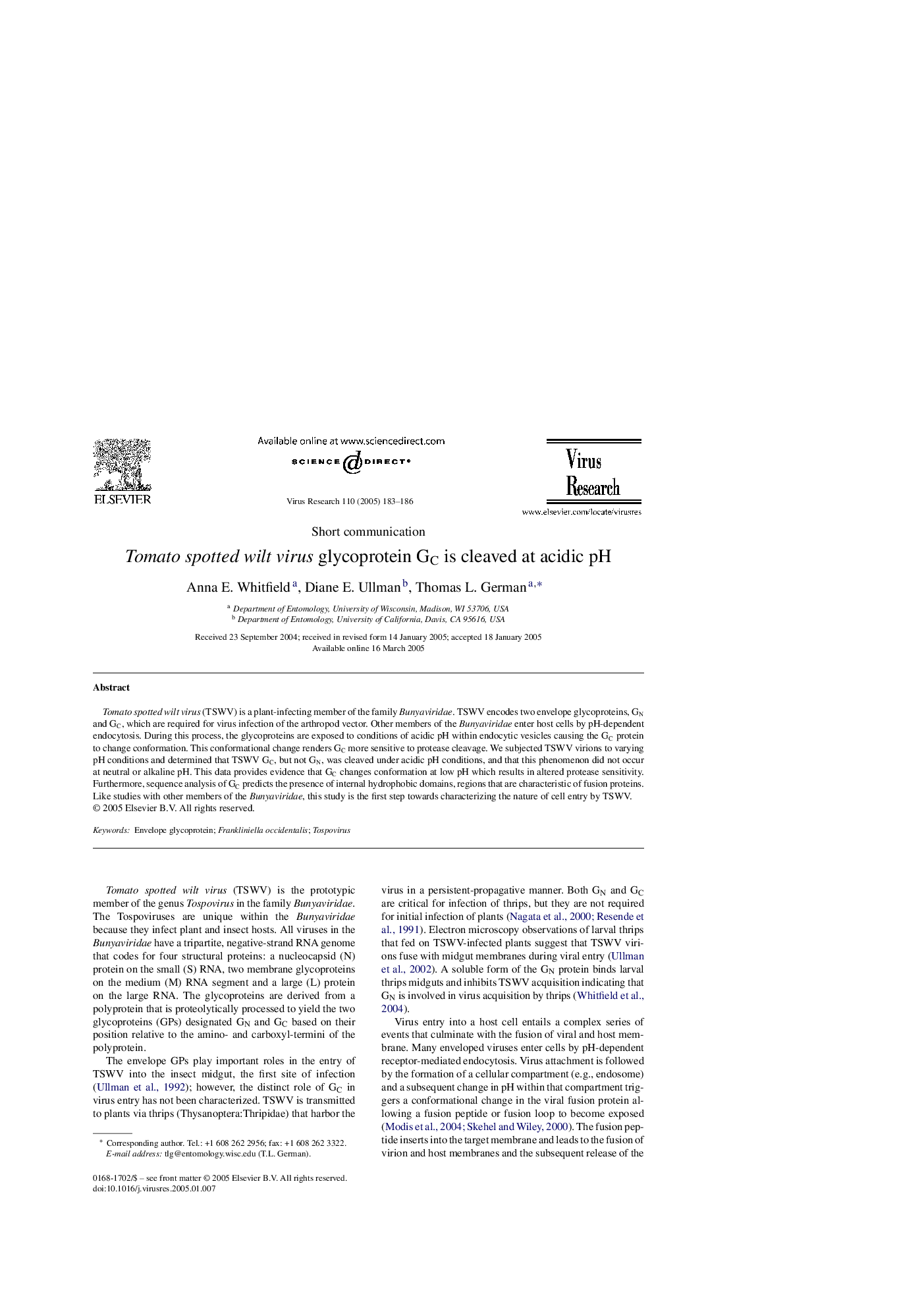| Article ID | Journal | Published Year | Pages | File Type |
|---|---|---|---|---|
| 9289281 | Virus Research | 2005 | 4 Pages |
Abstract
Tomato spotted wilt virus (TSWV) is a plant-infecting member of the family Bunyaviridae. TSWV encodes two envelope glycoproteins, GN and GC, which are required for virus infection of the arthropod vector. Other members of the Bunyaviridae enter host cells by pH-dependent endocytosis. During this process, the glycoproteins are exposed to conditions of acidic pH within endocytic vesicles causing the GC protein to change conformation. This conformational change renders GC more sensitive to protease cleavage. We subjected TSWV virions to varying pH conditions and determined that TSWV GC, but not GN, was cleaved under acidic pH conditions, and that this phenomenon did not occur at neutral or alkaline pH. This data provides evidence that GC changes conformation at low pH which results in altered protease sensitivity. Furthermore, sequence analysis of GC predicts the presence of internal hydrophobic domains, regions that are characteristic of fusion proteins. Like studies with other members of the Bunyaviridae, this study is the first step towards characterizing the nature of cell entry by TSWV.
Related Topics
Life Sciences
Immunology and Microbiology
Virology
Authors
Anna E. Whitfield, Diane E. Ullman, Thomas L. German,
